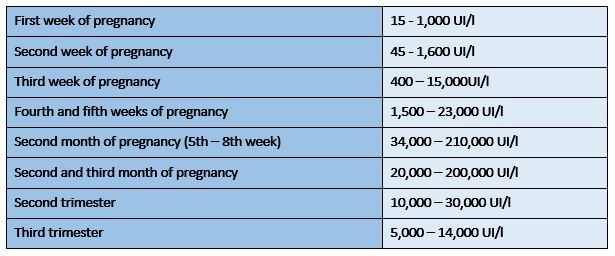
Assessing hCG levels is done sequentially, testing several days apart and comparing levels. If initial hCG levels are lower than average, your provider will test hCG levels again in a few days. Healthcare providers check hCG levels in the first trimester but usually don’t need to check again. HCG levels are typically not checked more than once or twice during pregnancy. How often do you test hCG levels in pregnancy? Then, they will compare the results to get a better picture of what’s going on with your pregnancy. If your healthcare provider is concerned about your hCG level, they will test your levels again in two or three days. Keep in mind a low hCG level doesn’t diagnose anything. At-home urine tests typically require higher hCG levels to return a positive. A urine hCG test is performed by either peeing on a chemical strip or placing a drop of urine on a chemical strip. The results are in milli-international units of hCG per milliliter of blood (mIU/mL).Īn at-home pregnancy test will be positive if hCG is detected in your urine.

A qualitative test detects if hCG is present in the blood.There are two different types of blood tests to detect hCG: However, a blood test is more accurate because it can detect smaller amounts of hCG. HCG can be detected in either blood or urine. Remember that healthy pregnancies may have lower than average hCG levels. Your healthcare provider will let you know if your hCG levels need to be checked and what your test results mean for your pregnancy.

It’s not the number that matters as much as how the number changes. These numbers should be used as a guide only. This chart shows how your hCG levels rise quickly and steadily in the first trimester before declining: What are normal hCG levels by week in pregnancy? The correct balance of these three hormones sustains and supports the pregnancy. Together with hCG, these hormones help thicken your uterine lining and tell your body to stop menstruating (or releasing eggs). Once your placenta begins making hCG, it triggers your body to create more estrogen and progesterone. What does human chorionic gonadotropin do? Healthcare providers look at how quickly a person’s hCG levels rise in early pregnancy to determine how the pregnancy and fetus (unborn baby) are developing. HCG increases quickly (almost doubling every three days) for the first eight to 10 weeks of pregnancy. It takes slightly longer for hCG to register on urine tests. HCG can be found in a person’s blood around 11 days after conception. Your placenta begins producing and releasing hCG into your blood and urine. The fertilized egg (called an embryo) implants (attaches) into the wall of your uterus. How is human chorionic gonadotropin produced?Īfter conception occurs, a fertilized egg travels through your fallopian tubes to your uterus. Healthcare providers measure hCG to confirm a pregnancy and provide details on how the pregnancy is progressing.

Your hCG levels are the highest towards the end of the first trimester (10 weeks of pregnancy), then decline for the rest of your pregnancy. HCG is found in your urine or blood around 10 to 11 days after conception (when a sperm fertilizes an egg). It’s sometimes called the pregnancy hormone because of its unique role in supporting a pregnancy. Human chorionic gonadotrophin (hCG) is a hormone produced by the placenta during pregnancy.


 0 kommentar(er)
0 kommentar(er)
